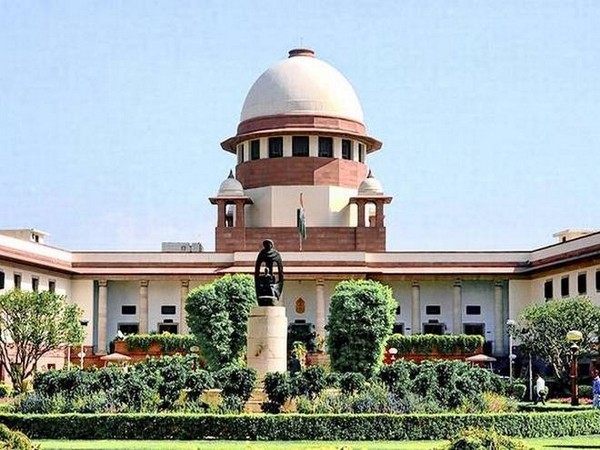The five-judge Constitution bench of the Supreme Court on Tuesday reserved its verdict on a batch of pleas challenging the constitutional validity of Section 6A of the Citizenship Act inserted by way of an amendment in 1985 in furtherance of the Assam Accord.
It deals with granting Indian citizenship to illegal immigrants in Assam. The petitions questioned the constitutional validity of Section 6A, which was inserted into the Citizenship Act as a special provision to deal with the citizenship of people covered under the Assam Accord.
A bench of Chief Justice of India DY Chandrachud, Justices Surya Kant, MM Sundresh, JB Pardiwala and Manoj Misra reserved the verdict after hearing arguments from all the parties in the case.
The Centre, in an affidavit, told the Supreme Court that it would not be able to provide accurate data on the extent of illegal migration of foreigners into India as such migration happened in a secretive manner.
On December 7, the apex court directed the Central government to furnish data on the number of immigrants who were conferred Indian citizenship through Section 6A(2) of the Citizenship Act, 1955 and what steps have been taken so far to curb illegal migration into Indian territory.
The affidavit stated that 14,346 foreign nationals were deported from the country between 2017 and 2022, and 17,861 migrants who had entered Assam between January 1966 and March 1971 were given Indian citizenship under the provision.
32,381 persons were declared foreigners by orders of Foreigners Tribunals between 1966 and 1971, it added.
Earlier, the bench had said that Section 6A was enacted as a humanitarian measure in the wake of the 1971 Bangladesh Liberation War and is deeply interwoven in our history.
Senior advocate Shyam Divan, appearing for the petitioners, told the bench that Section 6A violates the basic fabric of the Constitution of India and the values of secularism, fraternity and brotherhood contained in the Preamble.
Divan had requested the bench to direct the Centre to frame a court-monitored policy for all States and Union Territories for the settlement and rehabilitation of all the persons who came to Assam.
On December 17, 2014, a matter relating to citizenship in Assam was referred to the five-judge Constitution bench. On April 19, 2017, the top court constituted the bench to hear the case.
The National Register for Citizens (NRC), a list of Indian citizens containing all necessary information for their identification, was first formulated following the 1951 national census.
The Assam NRC is meant to identify illegal immigrants in the State who migrated from Bangladesh after March 25, 1971.
In 1985, the Indian government and the representatives of the Assam Movement negotiated and drafted the Assam Accord and created categories of immigrants.
The NRC exercise in Assam was carried out under Section 6A of the Citizenship Act 1955 and the rules framed in the Assam Accord 1985.
Section 6A of the Act was introduced to give effect to the Assam Accord. It provides the framework to recognise migrants in Assam as Indian citizens or to expel them based on the date of their migration.
The provision provides that those who have come to Assam on or after January 1, 1966, but before March 25, 1971, from specified territories, including Bangladesh in 1985, and since then are residents of Assam, must register themselves under Section 18 for citizenship. Therefore, the provision fixes March 25, 1971, as the cut-off date for granting citizenship to Bangladeshi migrants in Assam.
In 2013, the apex court directed the State of Assam to update the NRC.
On July 30, 2018, the final draft of the Assam NRC was released and 40.07 lakh applicants out of 3.29 crore were excluded from the NRC list, creating uncertainty about their citizenship status.
Later, the apex court said that this was merely a draft NRC and no action could be taken based on it. On August 31, 2019, the final NRC list was published and 19 lakh persons were excluded.
Assam Sanmilita Mahasangha, a Guwahati-based civil society organisation, along with others, challenged Section 6A way back in 2012 while arguing that Section 6A is discriminatory, arbitrary and illegal so far as it provides for different cut-off dates for regularising illegal migrants who entered Assam and the rest of India.
The Bangladesh Liberation War, which led to the independence of Bangladesh from Pakistan, witnessed a massive influx of migrants to India. Even prior to 1971, when Bangladesh gained independence from East Pakistan, migration had started to India.
On March 19, 1972, Bangladesh and India entered into a treaty for friendship, cooperation and peace.
The Assam Accord was a Memorandum of Settlement (MoS) signed between representatives of the Government of India and the leaders of the Assam Movement. It was signed in New Delhi on August 15, 1985 in the presence of then-Prime Minister Rajiv Gandhi.





